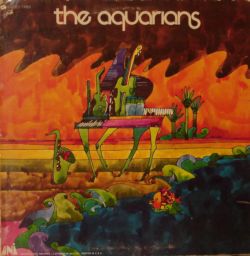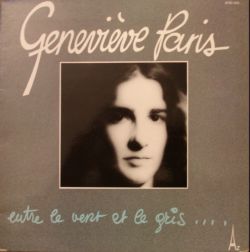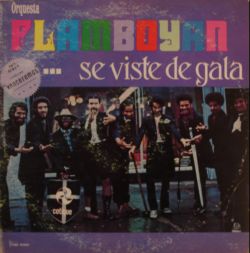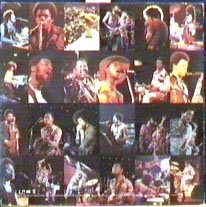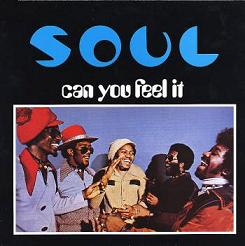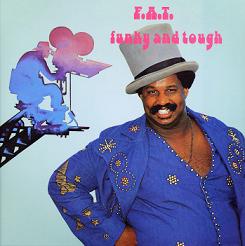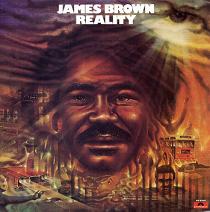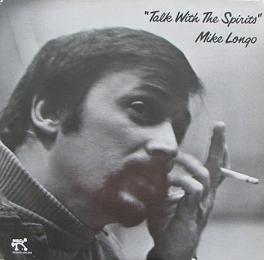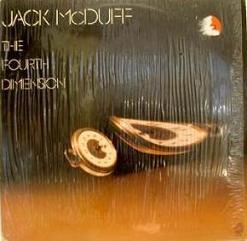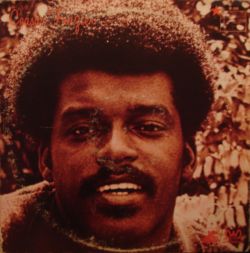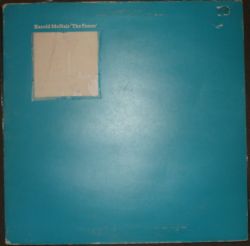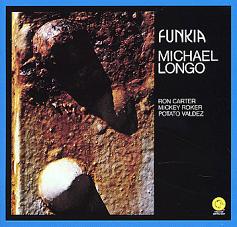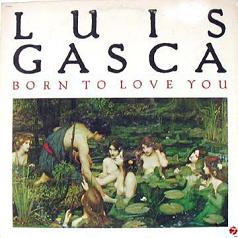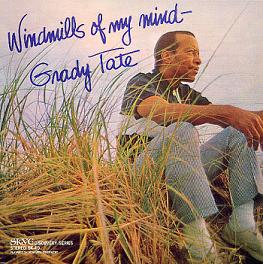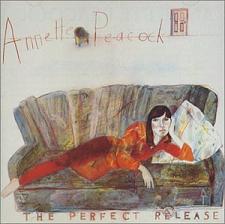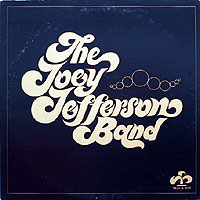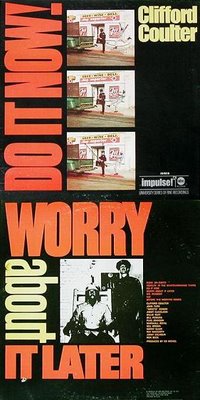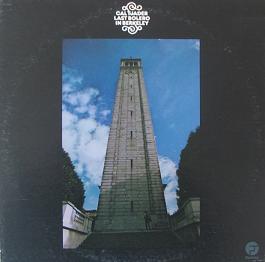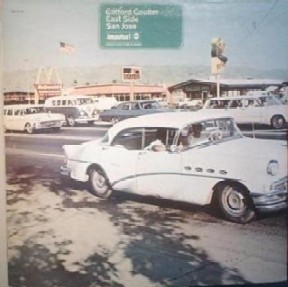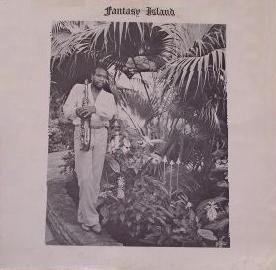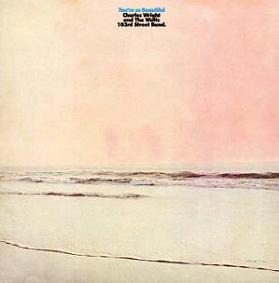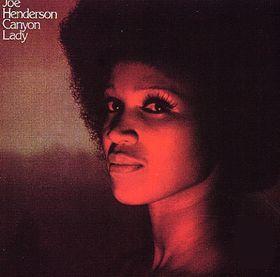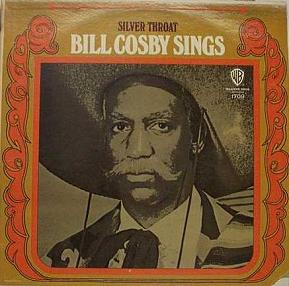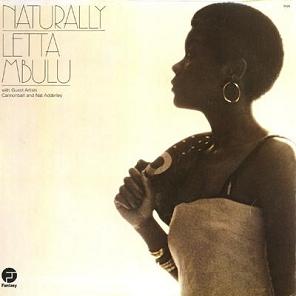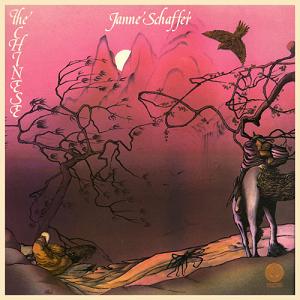
A conscious funk
Interview réalisée le 26 Mars 2006 à Marseille lors du festival Bol de Funk.
Est-il utile de vous présenter James Plunky Branch dont les concerts ont enflammé le public lors de ses passages en France ?
James a su traverser les époques et les styles, diffusant un message plein de spiritualité et de conscience.
First question about your shows in France, it’s the second time that you’ve been here, how do you feel about it, how's the crowd?
So far the crowds have been just great and I feel great about it.
This may be a life changing tour for me, I’m very gratified that not only older fans seem to appreciate the music but even some new younger people and I think that we’re converting them...
Now we’re going back in time, I would like to know where the name Oneness of Juju came from.
The name Juju, we took in San Francisco in 1972 I think, we chose it primarily because we wanted to have an African name, we didn’t have a specific reference to Nigerian Juju Music. We just wanted to have a name that sounded African.
We were performing and studying Yoruba “chants” from Nigeria but also Afro-Cuban music which has a relationship. But we chose the name not because we were so knowledgeable about Juju, we just picked the name as an inspiration.
I would like you to tell me about the Strata East Label. How did you get on there, how was it to work with them and how did you make the 2 albums?
Strata East was an very important business entity because it represented one of the first times that African American musicians took charge of the business part of the industry.
For fifty years before that, musicians had been just that, musicians. Here was Stanley Cowell and Charles Tolliver, the people who started that Label, attempting to take over and to take charge of their own business interests.
When we heard about their efforts they had put out maybe 3 or 4 albums and we were excited to say here is a black company featuring Jazz music with the musicians producing themselves and releasing the records.
So that Label was based in New York and we were based in SF, we had a gig in NY for a festival, we came and looked up the Strata East people. We had recorded the album that would become “A message from Mozambique” before we left SF and so we were shopping a tape and before we went anywhere else we went to Strata East and they heard it and immediately said “OK you can join us”. It was interesting because they had us join the Label as equals. It wasn’t like a hierarchy, like president right here and you were lowly musicians. All of the musicians were equals.
And in fact you mentioned Gil Scott Heron, in fact GSH and Mtume and Oneness of Juju we were the young people at the Label, the other musicians were a little bit older, and a little bit more conservative. They weren’t quite sure when they opened the label that they were ready for the political things that the 3 of us were doing. MTume had done an album for Strata East called “Akabe Line” which is very nationalistic and Oneness of Juju did this one called “Juju” that was African avant-garde Jazz and GSH came with his poetry very much political, he talked about Watergate and so the older musicians weren’t quite sure that they were ready for what we were doing. So there was a kind of 2 different camps within the label. I became great friends with Mtume and GSH at that time, we saw ourselves as sort of the young revolutionaries, the young lions of the label.
That was a very positive experience for me, because I was able to learn about the business at the same time as meeting these older, more experienced musicians that helped us along in our career. But lastly we helped them too 'cause the Label, I think, was much more exciting for having had the younger musicians who were striking out in this new direction.
In fact GSH’s record probably sold ten times more than anybody else's records at the Label.
We were important to them but they were important to us.
You stayed for 2 years and then you left the Label?
Well after those first two years there was something like a chism, a split. As I said, the split came from some of the straight-ahead jazz musicians who were concerned that the Label may move to a more “avant-garde” way or even into a funky way. But GSH's record was so successful, you would think that that would be positive, but some of the musicians were upset that the music was so commercial. The record met this commercial success, it took the label in a whole different direction, just in terms of business. So they were some arguments about which way the label was going to go, so I decided that I would start my own label “Black Fire”.
I worked with men from Washington DC. Jimmy Gray had been the distributor for Strata East in the DC area and so I combined with him, he and I partnered to start a Label.
We said “we can do the same thing based in Washington” and so we started our own Label and it was fairly successful for us, I’m glad we did it ‘cause again, it was a continuing of the learning experience
And if I would say something to the younger musicians, I would say “Don’t be afraid to strike out a new directions.”
At one time, Jazz music was a new direction, it’s a fairly old direction now, but in the early days Jazz was a new direction.
Hip Hop, at one point in the early eighties was a new direction.
But we find great success when we have the strength to go out on our own.
And when did you get into Funk, this was a new direction for you ...
Well, it was a new direction for a Jazz musician because we had been associated with avant garde Jazz movement and people like Sun Ra, Paroah Sanders, John Coltarne, Ornette Coleman. You don’t think of those names and Funk together
And before us you really didn’t think too much about African music and Funk together or Jazz with African music together. There were some, I’m not claiming that I invented that, but we were fairly early on with these kind of combinations, fusions of different music. So yes it was a new direction for such a political avant-garde Jazz group to go to African and Funk music
A lot of artists in the 80s disappeared or lost their inspiration, how did you live through this period, how do you explain this situation/fell about this?
I think it‘s a kind of natural reaction that some musicians who had some level of popularity, when the market for the music changed it can be very discouraging. In the US we have a disposable culture that means somebody gets hot, and 6 months later we cast them aside and we find a new, younger musician. We constantly go for younger musicians.
So as the music or music group gets older, they get less popular and the record companies cast them aside, they are not able to record, they seem to be a little less interesting for the public. They find other things to do. They teach or get out of music all together.
And it’s also understandable; as musicians get older they have more financial responsibilities. When you’re younger you might play music even if you're not making money, you just make it for the love of the music. But after getting older, you have children, you have bills, and if you say “well there’s nobody behind this record, no record company wants to release it”, then you do, you fall out of the game.
For musicians such as I, I was able to maintain because I did some other things.
I was able to teach in school, because my music is very diverse and I’m very versatile I can do other things, I can teach, play art venues, play in museums, not just night clubs, I can lecture and most importantly, what we were talking about, I’m involved in producing. So I use the time to study new media, to build a home studio, to record other people, younger musicians to keep my ideas fresh. I’m able to stay active in that way.
There was a period where I didn’t play a lot, commercially, I didn’t go touring in night clubs but I was able to make a living for myself in my state of Virginia, playing in colleges and producing.
Why did you move back to Virginia ?
I was originally from Virginia, I went to New York to go to school at Columbia University and then because I was into political issues I moved to San Francisco to get away for 2 or 3 years. Then I came back home because it was easier for me to raise a family.
I suppose you’ve been to Africa, when was the first time and what where your impressions?
I’ve been in Africa six or seven times and I can’t remember the first year but by the time I got to Africa, I had been performing for 20 years and wanting to go for that long. I finally went to Nigeria and to Ghana. I didn’t like Nigeria as much as I liked Ghana.
Nigeria and particularly Lagos was a big city, very harsh, abrasive, Ghana was more laidback, more relaxed and that was more in keeping with what I liked.
But going there was a rewarding experience, I had the chance to play with Sunny Ade, with Fela, I met Asante and a host of musicians.
I went to Ghana to tour for their “Commission on Children”, then another tour with Oneness of Juju & Asante.
But this was the late 80s, 90s.
Africa is an important place for me but I think now for the future, Europe will be important for me. What’s going on right now, with the release of the new DVD in France and I hope it will be important for the musicians and the people as well. Because I think, once again, it may not be a totally new direction but we’re representing this idea of Jazz and Hip-Hop and African, making statements and bringing people together. And I think it could be a good thing.
You’ve also been to Brazil and to Cuba, for some new projects?
I went to Brazil to score the music for a film, for a friend of mine. He asked me to go to Brazil to study the music and to prepare a sound track for his film. I went to Cuba for the same reason, a different friend was making a documentary film about Cuba.
I took my son, a Hip Hop producer and we went there twice. And while we were there, making the music for his film, we filmed some footage ourselves. My friend’s film was never released, but we made a film of the footage that we shot about Afro-Cuban music. It’s called “Under the Radar - a survey of Afro-Cuban music”. That’s a project for me, and you can tell from my most recent releases that that’s a direction that I want to go in. Doing videos and documentary films, use of multimedia to express our music.
As I said we released a DVD “Live in Paris” this year and I’m more exited by the documentary portion of the DVD!
We also have a DVD that we’re doing ourselves in Richmond called “African Rhythms 2006”, it’ s a short music video of that song, a remake of that song along with 10 other live segments.
Were beginning to have a library of multimedia. It represents a new direction and we’re making DVD about the music and the history of music.
Concert in Marseille
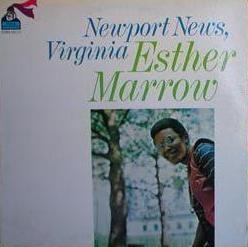 SIDE ONE
SIDE ONE








